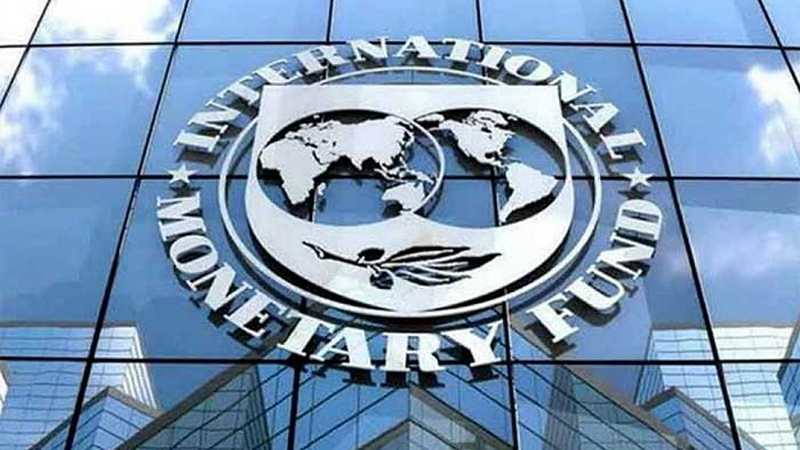The International Monetary Fund (IMF) sees some improvement in Bangladesh’s current economic crisis. The organization believes that the inflation rate will decrease compared to the current level in the coming future, while foreign currency reserves will increase. However, to stabilize the overall economy in the near term, there needs to be further tightening of monetary policy. Effective management of exchange rates, including the exchange rate of the local currency with the dollar, is crucial. It is necessary to maintain an impartial fiscal policy. Nevertheless, the IMF notes that economic uncertainty and risks will persist.
Following the approval of the second installment of the loan in a board meeting, the IMF has evaluated Bangladesh in a statement released on Tuesday night. The IMF has approved the disbursement of USD 68.98 million as the second installment of Bangladesh’s loan. It is expected that this amount will be added to the country’s foreign currency reserves by tomorrow. The local currency reserves are currently around BDT 7 trillion.
The IMF believes that by the end of the current fiscal year, Bangladesh’s inflation will be around 7.2 percent, compared to the current rate of over 9 percent. According to the organization, the central bank’s policies will have a more significant impact on various sectors through further tightening of monetary policy. The IMF praises the decision to adopt a flexible exchange rate as a step towards further stability.
Although there is less demand for private accounts, the IMF suggests focusing on comparative good governance in the next fiscal year, with a growth of 6 percent projected for Bangladesh. To achieve growth, it is crucial to increase social safety net spending and make necessary investments. The IMF appreciates the steps taken in economic reforms and administrative management, emphasizing the importance of tax rationalization, increased tax capacity, and addressing economic risks with more expertise.
Regarding foreign currency reserves, the organization suggests that by the end of the next fiscal year, Bangladesh’s foreign currency reserves will increase to $24.3 billion. Currently, the reserve amount is $19.13 billion. The IMF believes that the economic deficit in foreign transactions will not remain at the end of the fiscal year but will be a surplus.
The IMF considers economic reform essential and emphasizes the need for effective policy measures to address climate change impacts. If measures to combat climate change are improved, it will also contribute to the resilience of the foreign currency reserves in the private sector.
In a statement, IMF Managing Director Antoinette Sayeh said that Bangladesh is successfully dealing with multi-faceted economic challenges. Despite the global economic pressure on Bangladesh, the loan program is supporting comprehensive economic recovery and providing protection to vulnerable groups.
To address the economic crisis in Bangladesh, the IMF approved a loan of $470 million in January. The first installment of $47.63 million was released at the beginning of February. The entire loan is expected to be received in 42 months. In addition to the extended loan support (ESF), the Extended Fund Facility (EFF), and the Resilience and Sustainability Facility (RSF) – all three components contribute to the loan provided by the IMF. In the second installment, the ESF or EFF will contribute $46.83 million, and the RSF will contribute $22.15 million from the climate change impact fund.
To know the opinion, Policy Research Institute’s Executive Director Dr. Ahsan H. Mansur told Prothom Alo, that to reduce stability in the economy, the government needs to adopt the right and effective policy measures. It is necessary to implement a large-scale reform program in the economy, even if it is not possible now. The government needs to carry out extensive reforms in the economy after the election. The IMF’s proposed non-partisan revenue policy has been mentioned, focusing on the goal of increasing the ratio of tax-GDP, keeping the exchange rate in check to increase stability in global transactions, and promoting more favorable exchange rates.
The IMF directors agree that achieving large-scale reform in a difficult situation is not possible. Nevertheless, the government must initiate a comprehensive reform program in the economy soon after the election. In terms of the IMF’s proposed non-partisan revenue policy, he said that by maintaining a specific target in terms of revenue growth, the tax-GDP ratio should be increased, and non-partisan measures should be taken to increase the proportion of taxes.

